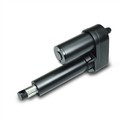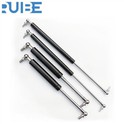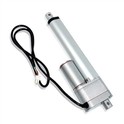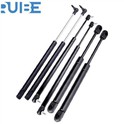Hey there! As a supplier of Mini Linear Actuators, I often get asked about the power consumption of these nifty little devices. So, I thought I'd dive into this topic and share some insights with you all.
First off, let's understand what a Mini Linear Actuator is. It's a compact device that converts rotational motion into linear motion. These actuators are super handy in various applications, from small-scale robotics to adjusting the position of components in electronic devices. They're like the unsung heroes of the engineering world, quietly doing their job in all sorts of places.
Now, onto the main question: what's the power consumption of a Mini Linear Actuator? Well, it's not a one - size - fits - all answer. The power consumption depends on several factors.
One of the most significant factors is the voltage. Most Mini Linear Actuators operate on either 12V or 24V. For instance, if you check out our 24V Linear Actuator, it generally consumes more power compared to a 12V one. This is because power (P) is calculated using the formula P = VI, where V is voltage and I is current. So, with a higher voltage, assuming the current remains somewhat constant (which it doesn't always, but we'll get to that), the power consumption goes up.
The load on the actuator also plays a huge role. If the Mini Linear Actuator has to move a heavy object, it'll draw more current. Think of it like you trying to push a heavy box. It takes more energy to move it compared to a light one. When an actuator is under a high load, the motor has to work harder, and this results in increased power consumption. For example, in an Electric Sofa, the actuator needs to move the weight of the sofa and any person sitting on it. This high - load situation means the actuator will use more power when adjusting the sofa's position.
The speed at which the actuator operates is another factor. A faster - moving actuator usually consumes more power. This is because to achieve a higher speed, the motor has to spin faster, and that requires more electrical energy. It's similar to how a car uses more fuel when it's going at a high speed compared to a slow crawl.
The duty cycle is also important. The duty cycle refers to the ratio of the time the actuator is in operation to the total time. If an actuator has a high duty cycle, meaning it's working most of the time, it'll consume more power over a given period. For example, in a Solar Tracker, the actuator may need to continuously adjust the position of the solar panels to follow the sun. This high - duty - cycle operation means the actuator will be using power for a large part of the day.
Let's take a closer look at some real - world numbers. A typical 12V Mini Linear Actuator with a light load and a slow speed might consume around 0.5 - 1 amp of current. Using the power formula P = VI, that's about 6 - 12 watts of power. On the other hand, a 24V actuator under a heavy load and operating at a high speed could draw 2 - 3 amps or more, which translates to 48 - 72 watts or even higher.
It's also important to note that the efficiency of the actuator can affect power consumption. A more efficient actuator will convert a higher percentage of the electrical energy it receives into mechanical energy for movement. So, when choosing a Mini Linear Actuator, it's a good idea to look for one with high efficiency to save on power costs in the long run.
Now, you might be wondering how you can measure the power consumption of a Mini Linear Actuator. You can use a multimeter to measure the voltage across the actuator and the current flowing through it. Then, simply multiply these two values to get the power. However, keep in mind that the power consumption can vary depending on the operating conditions, so it's a good idea to take multiple measurements over different load and speed conditions.
In some applications, power consumption is a critical factor. For example, in battery - powered devices, you want to use an actuator that consumes as little power as possible to extend the battery life. In industrial settings, reducing power consumption can lead to significant cost savings over time.
![]()
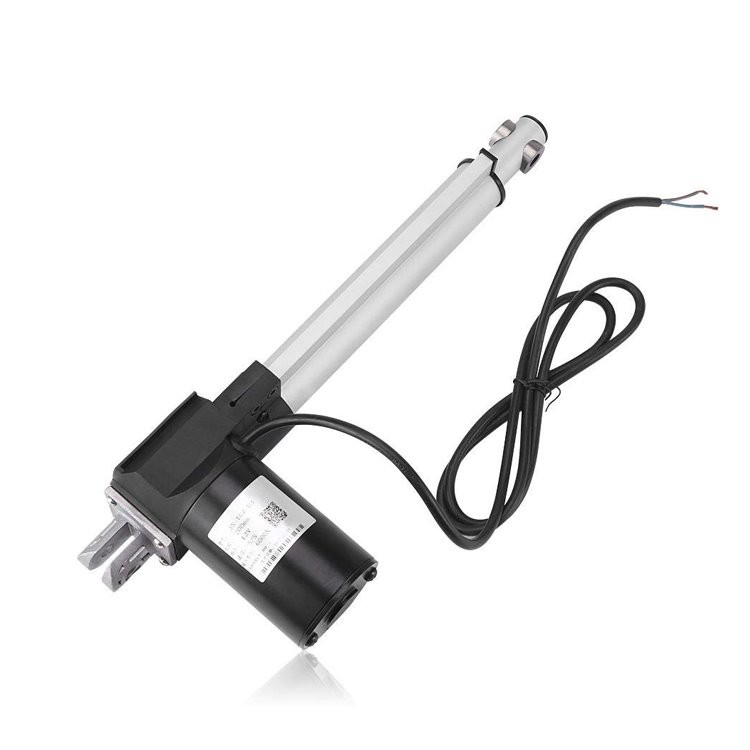
If you're in the market for a Mini Linear Actuator and are concerned about power consumption, we're here to help. We have a wide range of actuators with different power ratings and characteristics. Our team of experts can assist you in choosing the right actuator for your specific application, taking into account factors like load, speed, and duty cycle. Whether you need an actuator for an electric sofa, a solar tracker, or any other project, we've got you covered.
So, if you're interested in learning more or making a purchase, don't hesitate to reach out. We're always happy to have a chat and help you find the perfect Mini Linear Actuator for your needs. Let's work together to make your project a success!
References:
- General knowledge of electrical engineering principles and actuator technology.
- In - house testing and data on Mini Linear Actuator performance.

